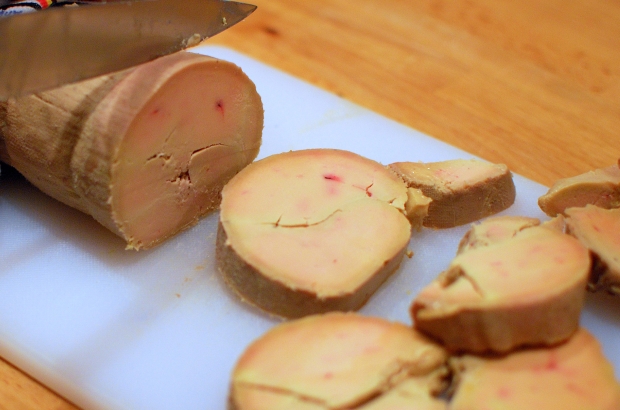- Daily & Weekly newsletters
- Buy & download The Bulletin
- Comment on our articles
Last foie gras producer in Flanders to close ahead of force-feeding ban
Flanders' last foie gras producer will officially close its doors before 1 January, a year ahead of the proposed deadline, in a victory for animal welfare organisations that have been campaigning on the matter.
Geese are force-fed as part of the process of preparing foie gras, a French cuisine defined as the fattened liver of a duck or goose.
Flemish animal welfare minister Ben Weyts has called the process "outdated and barbaric".
The last foie gras producer in Flanders, a company located in Ichtegem, West Flanders, has agreed to stop using force-feeding in return for compensation from the Flemish authorities, Weyts announced this week.
“We are once again saying goodbye to an outdated practice - just as we did with unanaesthetised slaughter, block tails and fur-farming,” Weyts said.
“Force-feeding is still economically profitable, but as a civilised society we consider animal welfare more important. There is a fair financial arrangement for the people behind the business.”
Weyts announced a ban some time ago with a deadline for compliance by the end of 2023, offering compensation to producers in amounts that would decrease the longer they waited to close shop.
The company in Ichtegem is the last of them.
“I am pleased that the company does not necessarily want to continue until the bitter end,” said Weyts.
“We no longer want these activities in Flanders, but we have ensured compensation. This way, the company can stop these activities in a dignified way.”
Fois gras is particularly popular with some families around the Christmas holidays.
While Flanders and Brussels have both banned force feeding itself, producers in Wallonia can still supply both regions with foie gras so long as it is made within that region.
Animal rights organisations, along with Weyts himself, say the fight against force-feeding animals, often to death, for culinary reasons must now continue at the European level.
“There are still unrealistic requirements for foie gras production: a duck liver must be fattened to 300 grams, a goose liver to 400 grams,” the minister’s office explained.
“That's six to 10 times the weight of a healthy animal's liver. In practice, this means the animals have their food force-fed down their throats. The animals are literally made sick.”
Weyts said that Flanders is taking the lead within Europe when it comes to animal welfare: “A civilised society has a damned duty to avoid avoidable animal suffering to the maximum extent.”



















